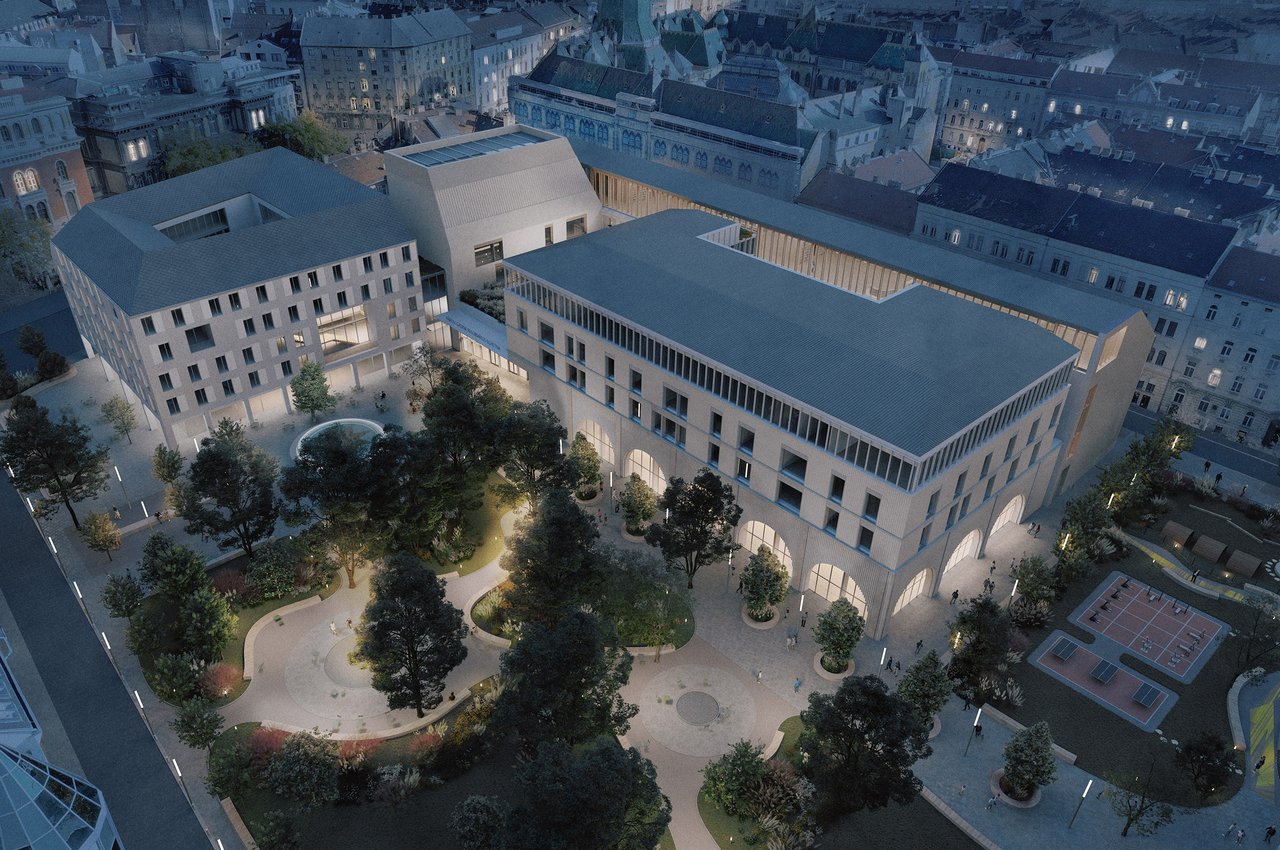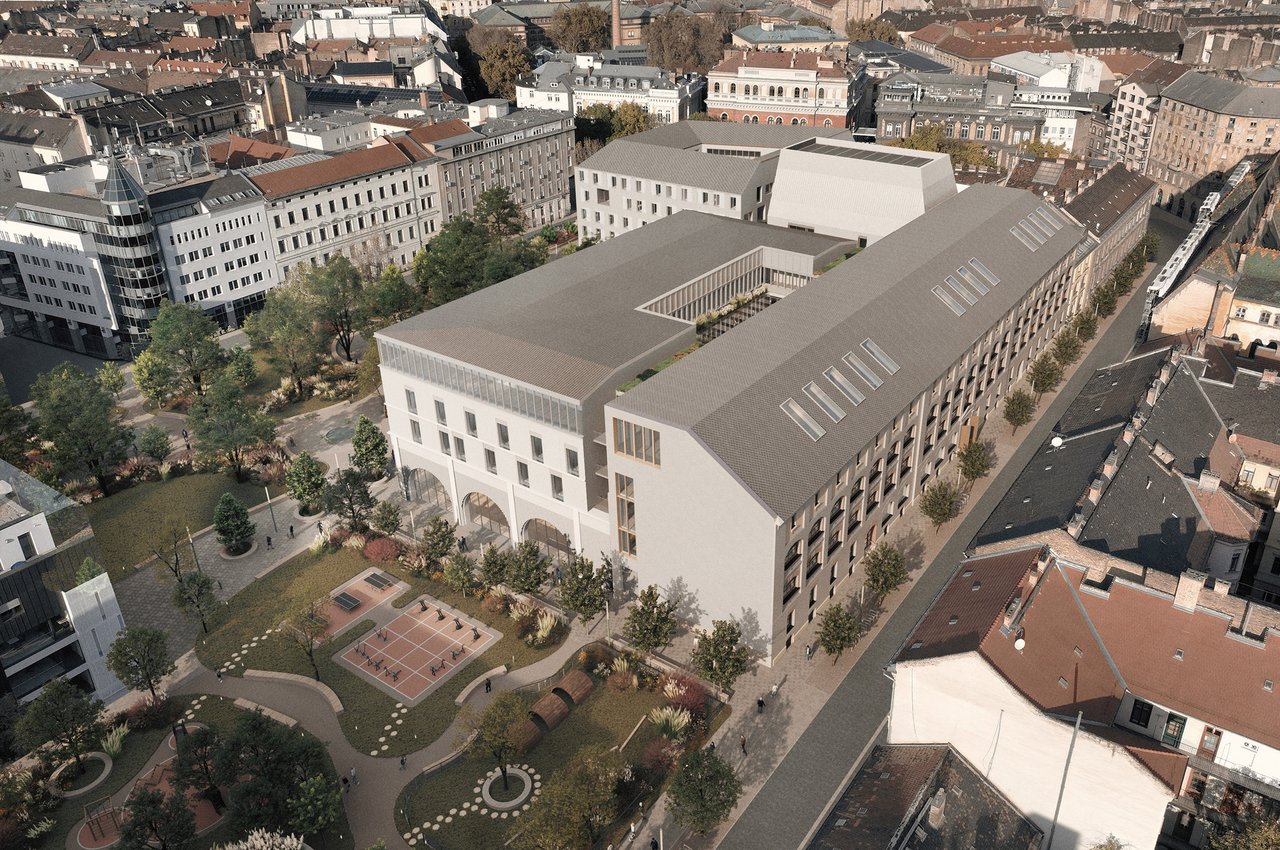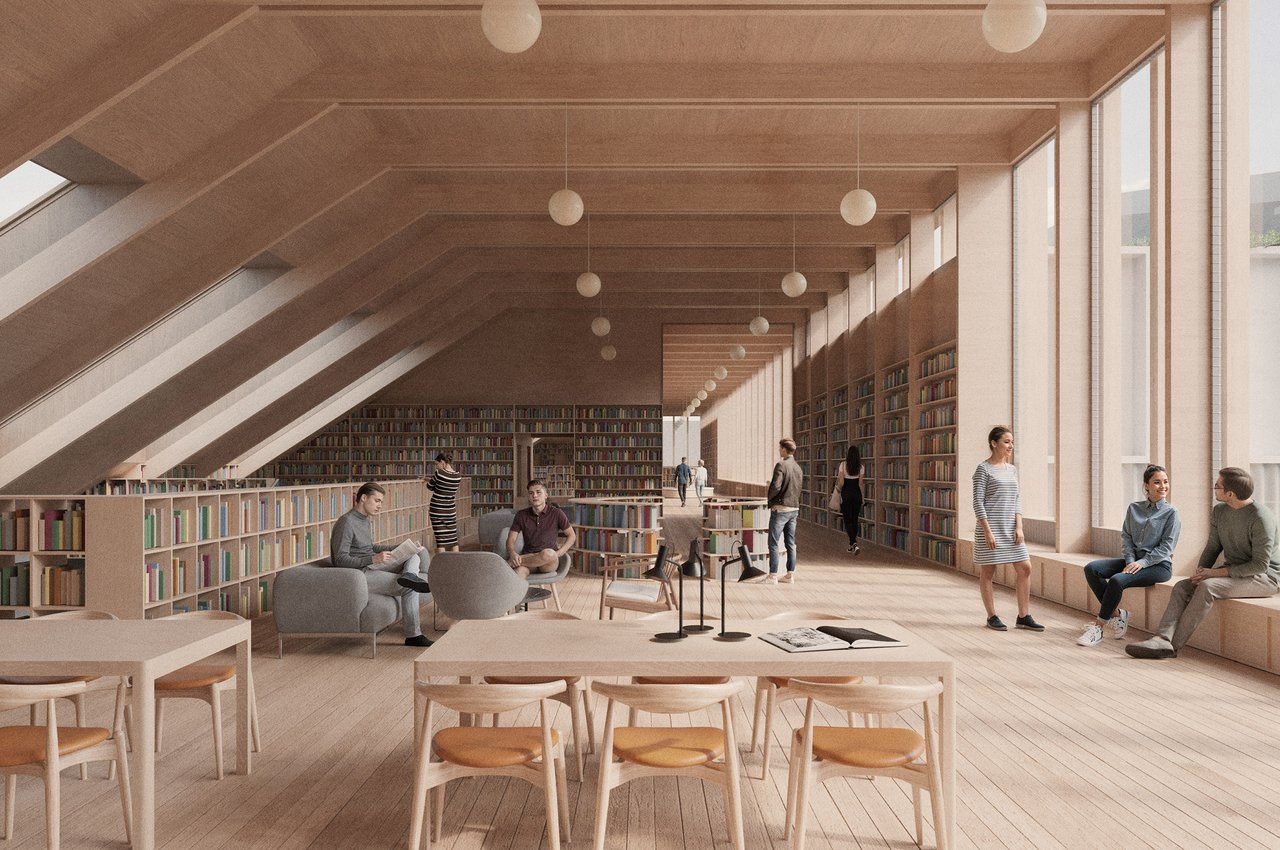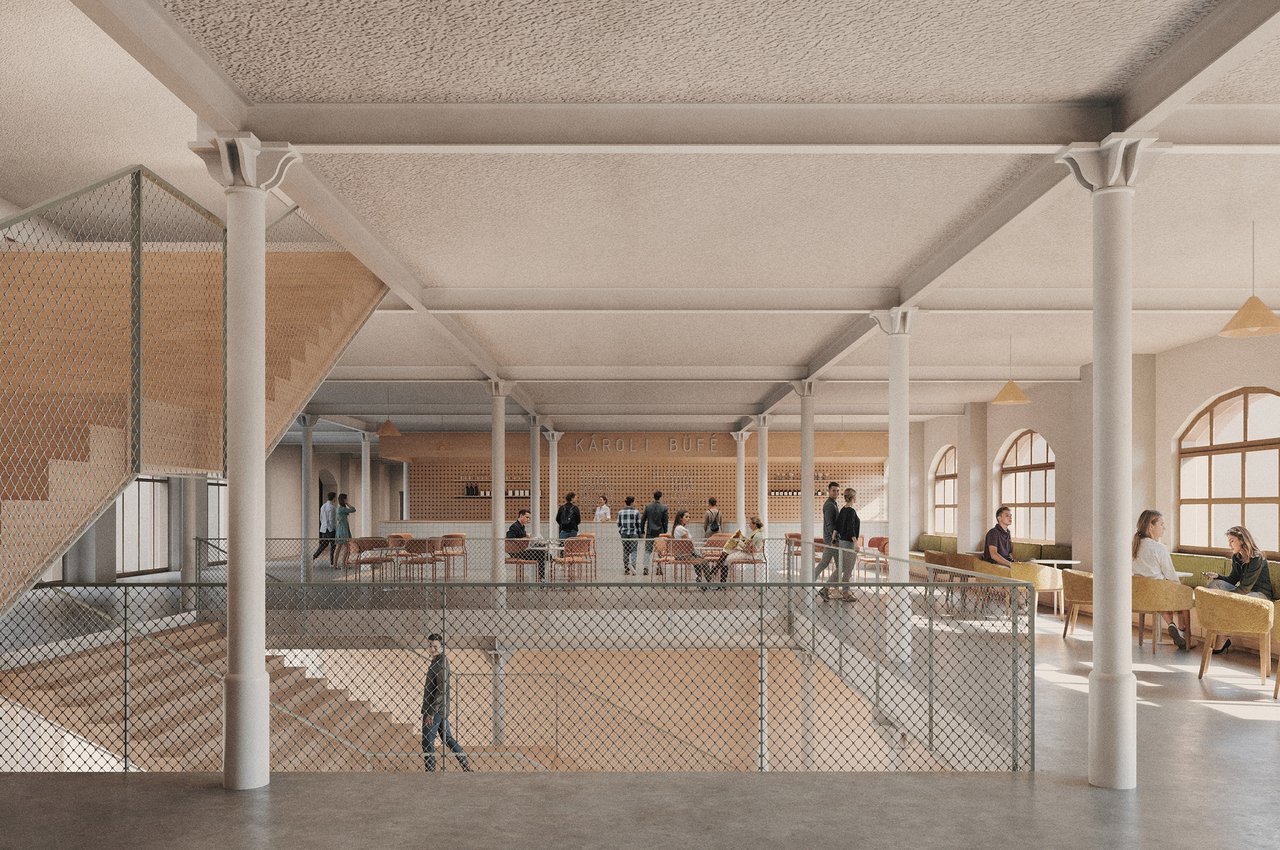The Reformed Church of Hungary has announced an open architectural competition for the design of the new campus of the Károli Gáspár University of the Reformed Church in Hungary (KRE) in Ferencváros. 42 architectural firms submitted valid entries. The winning entry was selected by a jury of experts from Archikon Architects, Budapest, which is 35 years old this year. In addition to the experts delegated by the Reformed Church, the jury was composed of Zoltán Erő, Chief Architect of Budapest, Krisztina Baranyi, Mayor of Ferencváros, Tihamér Szalay, Vice President of the Hungarian Chamber of Architects, and Gyula Balázs Csáki-Hatalovics, Chancellor of the University. The jury was chaired by Regő Lánszki, National Chief Architect and State Secretary of the Ministry of Construction and Transport, and co-chaired by Balázs Fürjes, Head of University Development. The results of the competition were announced on Monday evening.
A new university campus in Budapest is planned to be built in a traditionally Reformed neighbourhood of Ferencváros, between Ráday Street and Üllői Street. The Reformed Church of Hungary has launched an open architectural competition to select the design and architect for a campus to be built using the former Kaltenberg pub building and an undeveloped plot of land on Üllői Street. The new campus of the KRE will be built in the vicinity of Markusovszky Square with state and church funding, and will house the Faculty of Law and the Institute of Psychology, which will simultaneously host almost 2,500 students.
The design competition was open to any architectural firm from Hungary and the European Union. The competition attracted a record turnout: 42 firms submitted valid projects.
The first prize was awarded to Archikon Architects.
This year the agency celebrates its 35th anniversary. In recent years, its work has been recognised with prestigious national awards such as the Budapest Architecture Award, the Media Architecture Award, the Pro Architectura Award, the House of the Year Award and numerous district awards. Internationally, in addition to the Architizer A+ Award, the BigSEE Award, the FIABCI World Prix d' Excellence Award, the firm's outstanding work has been selected among the best European projects by the jury of the EU's most prestigious architectural awards, the MiesAward and the Piranesi Award.
The aim of the competition was to offer creative contemporary designs for the university campus in the spirit of tradition and renewal, reflecting the mission of the Church - the proclamation of Christ based on the biblical Word - and its openness, the integration of the building into the Ferencváros district, its harmony with the district's master plans, and the possibility of building a 21st century building that would serve the people of Ferencváros well. The aim was to design a university building and public space of high architectural quality, characterised by sustainability, environmental awareness and Reformed modesty.
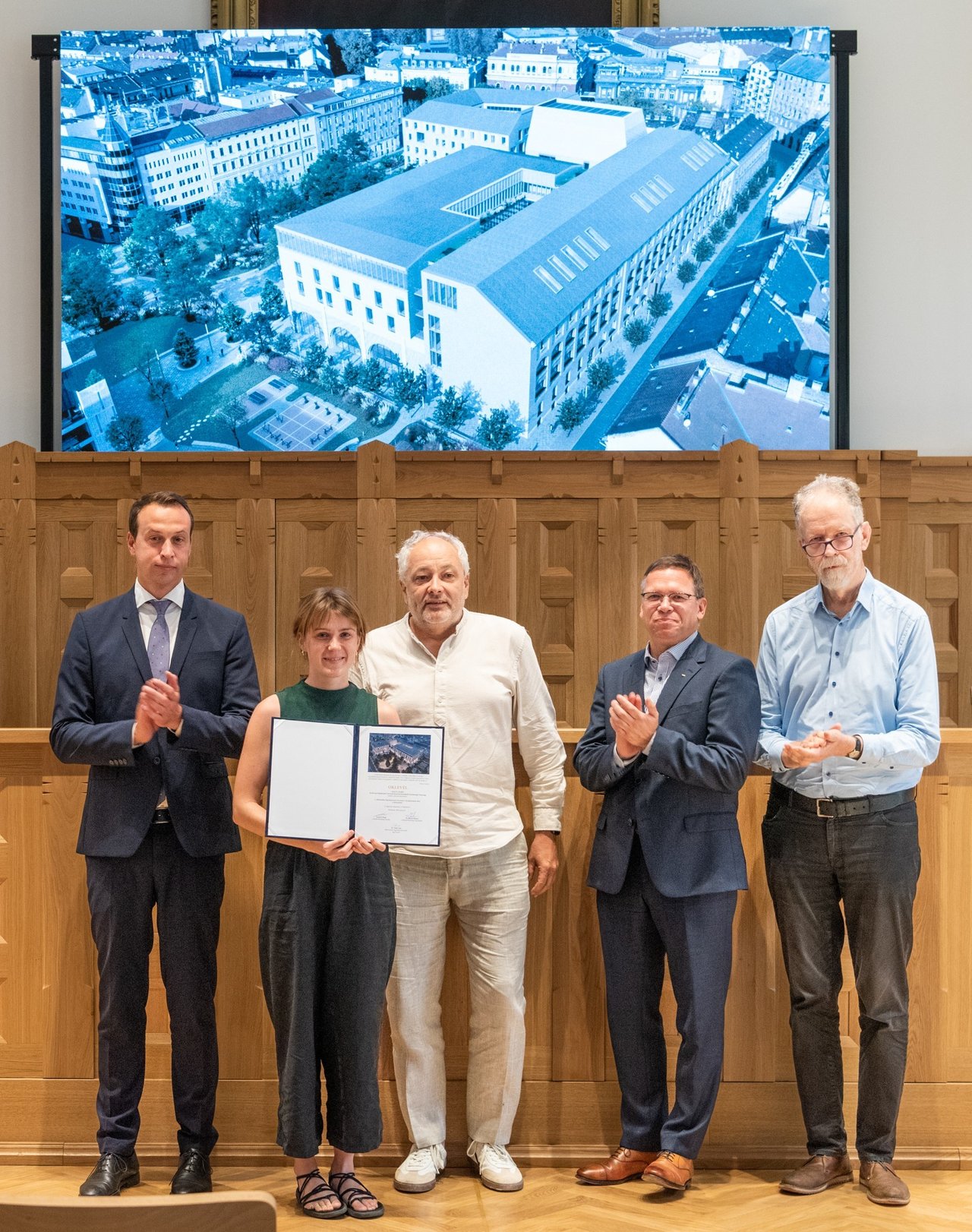
In its professional recommendations to the competition, the jury drew attention to the fact that the leisure functions serving the public should be preserved and developed in Markusovszky Square, and that the exploration of the building complex on Üllői Street, the parking and the design of the public space should be implemented in cooperation with Ferencváros. This is also guaranteed by the fact that the Reformed Church has already invited the Mayor of Ferencváros, Krisztina Baranyi, and the Chief Architect of Budapest, Zoltán Erő, to participate in the jury of the open architectural design competition.
At the announcement of the results of the competition, Professor László Trócsányi, Rector of the Károli Gáspár University of the Reformed Church, welcomed the architects and praised the winners. According to the university rector, the new campus will contribute to strengthening the university's competitiveness. The University is always striving to promote quality and community and considers it important that this is also achieved in the field of infrastructure development.
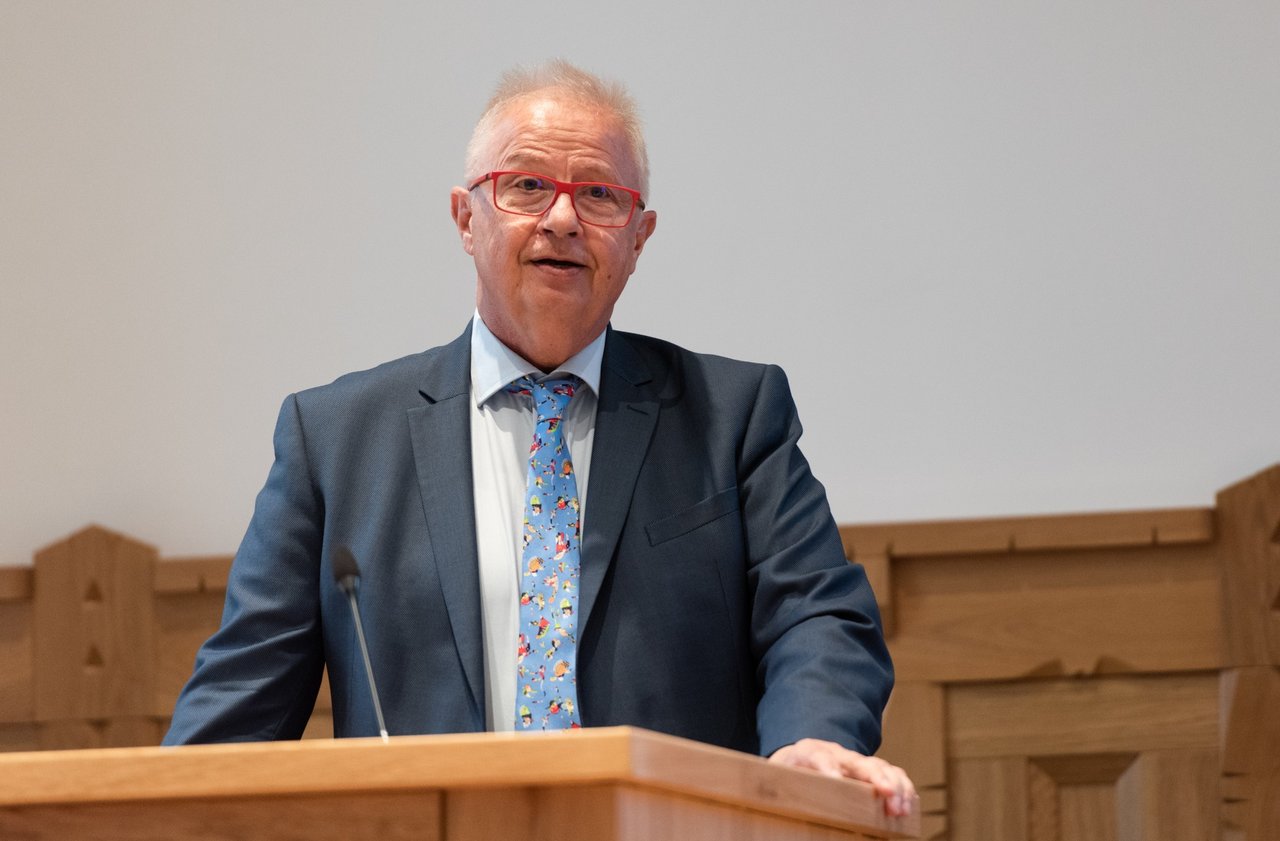
"In our district, major university developments have been underway for years, some of them are in the preparation and planning stage, while others are already under construction," said Krisztina Baranyi, Mayor of District IX. She added: "It is no exaggeration to say that Ferencváros is a university town. It is regrettably rare for the district to be involved at the planning stage and to have its views taken into account, as in this project. The new University campus will be a dominant building complex in the inner Ferencváros, which requires that its design be integrated with Markusovszky Square, the only public park in the district. As mayor of Ferencváros, this was a priority for me when the design competition was launched, and although there were good ideas in several designs, none of the proposals submitted was fully supportable. The new university development should not displace the people of Ferencváros who want to relax from the square and should not cause more public space congestion than necessary. The winning plan is indeed promising from an architectural point of view, and I see an opportunity in the next one and a half to two years of planning to produce plans that do not compromise the current functions and green space proportions of the public park, because they must continue to serve the residents of the district first and foremost. I trust that the commissioning Reformed Church will consistently take account of the recommendations in this respect in the further planning."
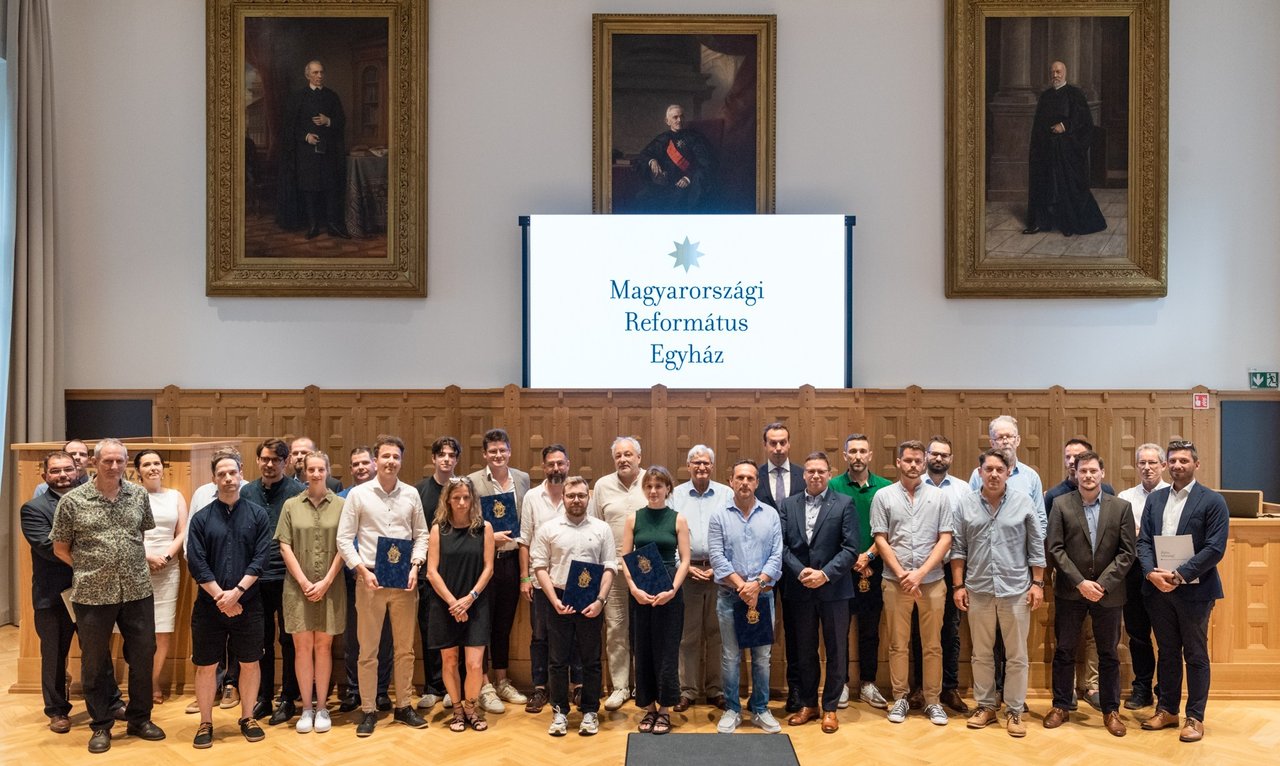
As the chief architect of Budapest, Zoltán Erő, a member of the architectural jury, said it was important to highlight that "the competition showed how to manage the dense urban fabric with generous space development while preserving existing spaces for urban use. Promising solutions show that the new campus can be developed in a kind of "city within a city", where the buildings of the "university city" show a differentiation similar to the real city, with a variety of massing and facade design. From the start of the competition, sustainability and the reduction of the ecological footprint have been a key idea - this requires, above all, the preservation and intelligent use of the Kinizsi Street wing, and the recycling of existing structures. We have received a variety of ideas and good proposals for this."
At the announcement of the results, Regő Lánszki, the national chief architect, who headed the jury, said that "education has been a key element of the Reformed identity since the beginning of the 16th century. The Reformation and the founding of schools went hand in hand throughout Europe, including Hungary. Archikon's winning design integrates the Károli Gáspár University of the Reformed Church in Hungary not only in a global sense, but also in a local sense. It preserves the original structure of the Tobacco Factory, which played an important role in the local architectural and industrial history and was immortalised by Ferenc Molnár in The Paul Street Boys. The connection between the interior of the park and the façade open to Üllői Street, the arcades and the landscaping is reinforced.
The modern building that is being constructed will meet the most important architectural and urbanistic requirements, blending into the fabric of the city centre, fitting in with the existing buildings and the historical, cultural and architectural traditions of the area, providing integration, a home for identity and, we hope, a flagship for Reformed higher education. The government is committed to supporting ecclesiastical higher education in all areas, including in the design of real estate development projects, as it plays a crucial role in Hungarian culture, national academic life and social development. We are convinced that in this way we are not only paying homage to historical achievements, but also creating intellectual workshops for the future of Hungary."
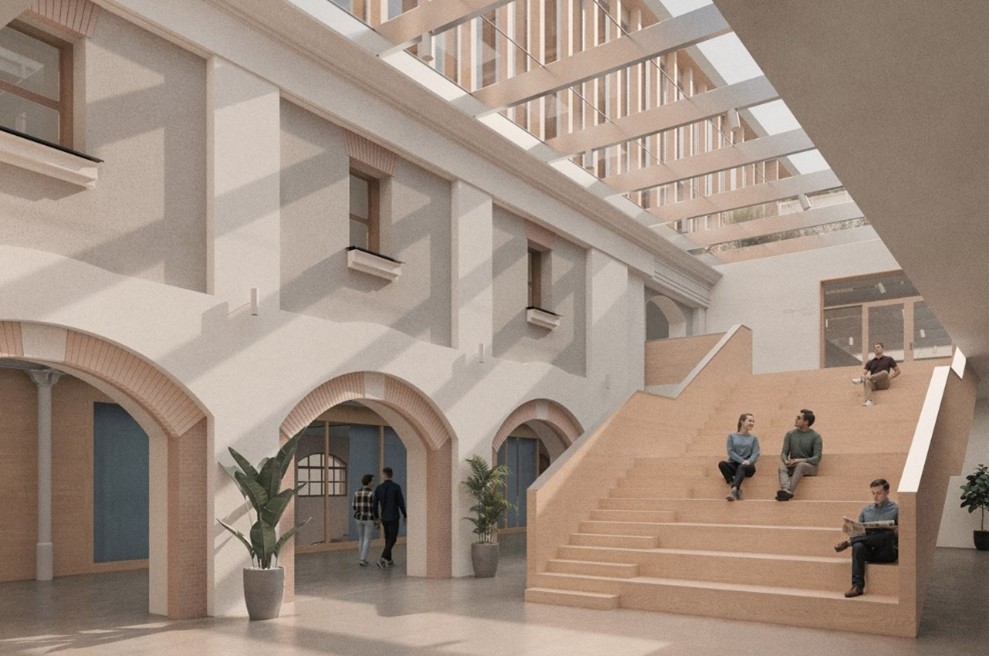
Balázs Fürjes, co-chair of the jury and Head of University Development, who presented the awards, said at the award ceremony: 'As a believer of the Reformed Church and the descendant of Pál Török, the bishop of the church and university building, it is an honour to be involved in the planning and preparation of the university building at the request of the church. The planning will be a joint work, and I believe in cooperation. We will work together with the staff of the church, the university community, Ferencváros and even the residents. We know that if we are going to work on city-building, this is the rule: dream boldly and freely, plan responsibly, build with discipline. The great art lies in having the freedom, the courage and the imagination, the creativity, to dream, and the order, the discipline and the precision to realise it. At the same time, and together, so that the dream's capriciousness does not destroy the work, and the discipline of the work does not stifle the dream. That is how we will work, always in a team, with humility. For the good of our city, for the glory of God."
Source: reformatus.hu
Photo by Tamás Füle


